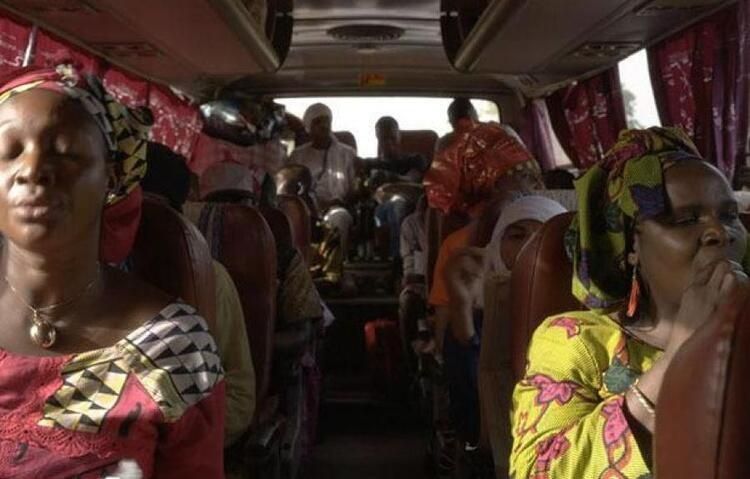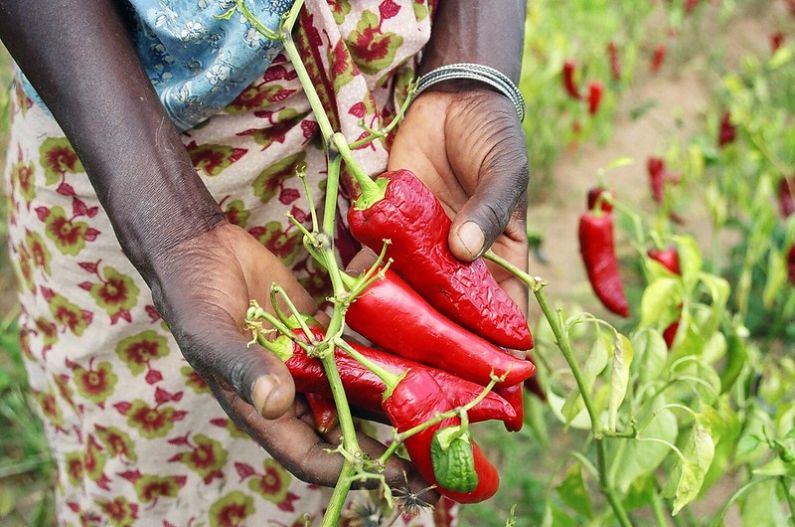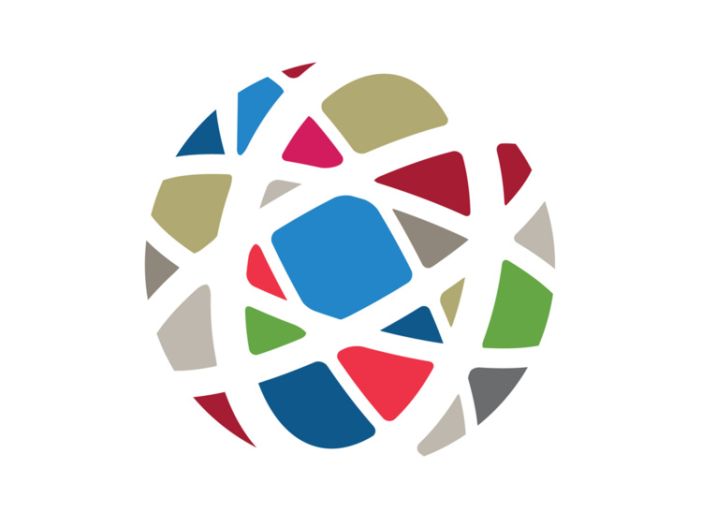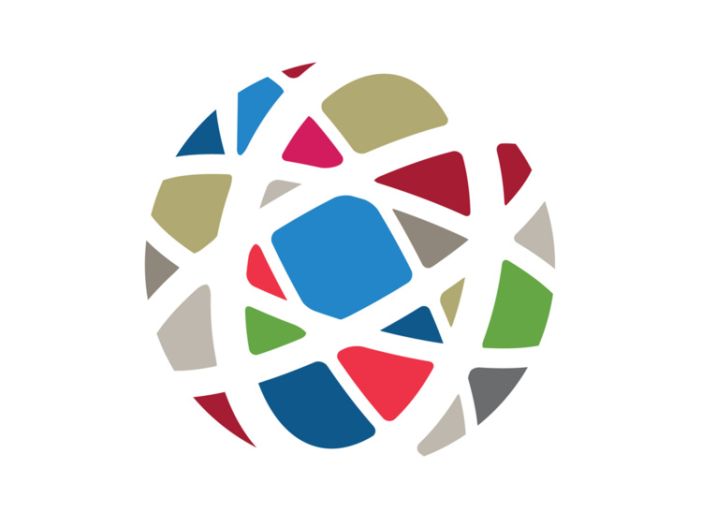Institute for African Development
Borders / Frontieres

August 29, 2024
7:00 pm
Willard Straight Hall Theatre
On a bus en route from Dakar, Senegal, to Lagos, Nigeria, three women must band together as they navigate the risks that come with traveling alone while female, fighting back against threats of violence, sexual harassment, and government corruption at each border crossing. This inspiring drama from Burkinab director, Apolline Traor, pays tribute to the bravery of West African women asserting their independence in a patriarchal society.
Free admission. Sponsored by the Institute for African Development (IAD) at the Mario Einaudi Center for International Studies and supported by IAD's Undergraduate International Studies and Foreign Languages (UISFL) Grant from the U.S. Department of Education.
Film website: https://www.diffa.tv/frontieres-91-2016-burkina-faso-france/
Additional Information
Program
Einaudi Center for International Studies
Institute for African Development
How Food Prices Have Changed Over the Past Four Years

Chris Barrett, IAD/SEAP
Christopher Barrett, professor of agricultural and development economics, says “Housing costs in particular are up sharply since the start of the pandemic. That crimps people’s ability to buy the food they need.”
Additional Information
Information Session: Graduate Opportunities

November 4, 2024
5:00 pm
The Mario Einaudi Center for International Studies funds international graduate student research!
Research travel grants provide international travel support for graduate and professional students to conduct short-term research or fieldwork outside the United States.
Global PhD Research Awards fund fieldwork for 9 to 12 months of dissertation research.
Register for the virtual session.
Can’t attend? Contact einaudi_center@einaudi.cornell.edu.
***
The Mario Einaudi Center for International Studies hosts info sessions for graduate and for undergraduate students to learn more about funding opportunities, international travel, research, and internships. View the full calendar of fall semester sessions.
Additional Information
Program
Einaudi Center for International Studies
Reppy Institute for Peace and Conflict Studies
East Asia Program
Southeast Asia Program
Latin American and Caribbean Studies
Institute for African Development
Institute for European Studies
South Asia Program
Migrations Program
Global Hubs Info Session: Seed Grants with University of Zambia

September 3, 2024
9:00 am
Global Cornell is offering competitive faculty grants in collaboration with Global Hubs partners.
Apply for funding to explore potential research collaborations with colleagues at Hubs universities.
Global Hubs collaborative research seed grants bring together Cornell and partner institution faculty to develop joint projects with the potential to create new or expanded research partnerships and cutting-edge scholarship with academic and societal impact. These international seed grants provide initial financial support for early-stage research projects or capacity-building efforts to create and sustain long-term collaborations and secure external funding.
Please join us on September 3 at 9:00 a.m. EDT / 3:00 p.m. CAT for a joint info session to learn more about the Cornell-UNZA grant opportunity. Q&A and collaboration matchmaking will follow a short presentation.
Up to four (4) research proposals will be funded.
Each successful proposal may receive up to $5,000 from Cornell.
Application deadline: October 4, 11:59 p.m. EDT
Project duration: January 1–December 31, 2025.
Register for the UNZA-Cornell Joint Info Session on Zoom.
Learn more and apply for a UNZA-Cornell seed grant.
Sign up for the UNZA-Cornell collaboration matchmaking.
Learn about additional seed grants available with other Global Hubs partners.
Additional Information
Program
Einaudi Center for International Studies
Institute for African Development
Global Hubs Info Session: Seed Grants with University of Ghana

September 3, 2024
11:00 am
Global Cornell is offering competitive faculty grants in collaboration with Global Hubs partners.
Apply for funding to explore potential research collaborations with colleagues at Hubs universities.
Global Hubs collaborative research seed grants bring together Cornell and partner institution faculty to develop joint projects with the potential to create new or expanded research partnerships and cutting-edge scholarship with academic and societal impact. These international seed grants provide initial financial support for early-stage research projects or capacity-building efforts to create and sustain long-term collaborations and secure external funding.
Please join us on September 3 at 11:00 a.m. EDT (Ithaca) / 3:00 p.m. GMT (Accra) for a joint info session to learn more about the Cornell–Ghana grant opportunity. Q&A and collaboration matchmaking will follow a short presentation.
Up to four (4) research proposals will be funded.
Each successful proposal may receive up to $5,000 from Cornell.
Application deadline: October 4, 11:59 p.m. EDT
Project duration: January 1–December 31, 2025
Register for the UG-Cornell Joint Info Session on Zoom.
Learn more and apply for a UG-Cornell seed grant.
Sign up for the UG-Cornell collaboration matchmaking.
Learn about additional seed grants available with other Global Hubs partners.
Additional Information
Program
Einaudi Center for International Studies
Institute for African Development
Information Session: Global Internships

December 13, 2024
12:00 pm
Uris Hall, G08
Go global in summer 2025! Global Internships give you valuable international work experience in fields spanning global development, climate and sustainability, international relations, communication, business, governance, and more.
***
The Mario Einaudi Center for International Studies hosts info sessions for graduate and for undergraduate students to learn more about funding opportunities, international travel, research, and internships. View the full calendar of fall semester sessions.
Additional Information
Program
Einaudi Center for International Studies
Reppy Institute for Peace and Conflict Studies
East Asia Program
Southeast Asia Program
Latin American and Caribbean Studies
Institute for African Development
Institute for European Studies
South Asia Program
Migrations Program
Information Session: Global Internships

November 27, 2024
1:00 pm
Go global in summer 2025! Global Internships give you valuable international work experience in fields spanning global development, climate and sustainability, international relations, communication, business, governance, and more.
Register for this virtual session.
***
The Mario Einaudi Center for International Studies hosts info sessions for graduate and for undergraduate students to learn more about funding opportunities, international travel, research, and internships. View the full calendar of fall semester sessions.
Additional Information
Program
Einaudi Center for International Studies
Reppy Institute for Peace and Conflict Studies
East Asia Program
Southeast Asia Program
Latin American and Caribbean Studies
Institute for African Development
Institute for European Studies
South Asia Program
Migrations Program
Information Session: International Relations & Migration Studies Minors

October 30, 2024
4:30 pm
Uris Hall, G08
The Migration Studies Minor is a university-wide, interdisciplinary undergraduate minor that prepares students to understand the historical and contemporary contexts and factors that drive international migration and shape migrant experiences around the globe. This minor draws on the rich course offerings found across the humanities and social sciences at Cornell and is designed to draw students outside of their major fields and to extend their knowledge beyond a single country.
Is the Einaudi Center's International Relations minor for you? Here's a chance to find out. In the international relations minor, you study the politics, economics, history, languages, and cultures of the world and gain a fresh perspective on your major field of study. Graduates go on to successful careers in fields like international law, economics, agriculture, trade, finance, journalism, education, government service, and more.
Can’t attend? Contact migration-minor@einaudi.cornell.edu (Migrations) or irm@einaudi.cornell.edu (International Relations).
***
The Mario Einaudi Center for International Studies hosts info sessions for graduate and for undergraduate students to learn more about funding opportunities, international travel, research, and internships. View the full calendar of fall semester sessions.
Additional Information
Program
Einaudi Center for International Studies
Reppy Institute for Peace and Conflict Studies
East Asia Program
Southeast Asia Program
Latin American and Caribbean Studies
Institute for African Development
Institute for European Studies
South Asia Program
Migrations Program
CANCELLED: Information Session: Global Internships

November 13, 2024
1:00 pm
Go global in summer 2025! Global Internships give you valuable international work experience in fields spanning global development, climate and sustainability, international relations, communication, business, governance, and more.
This session has been cancelled. For more sessions on Global Internships, view the full calendar of info sessions.
***
The Mario Einaudi Center for International Studies hosts info sessions for graduate and for undergraduate students to learn more about funding opportunities, international travel, research, and internships. View the full calendar of fall semester sessions.
Additional Information
Program
Einaudi Center for International Studies
Reppy Institute for Peace and Conflict Studies
East Asia Program
Southeast Asia Program
Latin American and Caribbean Studies
Institute for African Development
Institute for European Studies
South Asia Program
Migrations Program
Information Session: Global Internships

October 29, 2024
5:00 pm
Uris Hall, G08
Go global in summer 2025! Global Internships give you valuable international work experience in fields spanning global development, climate and sustainability, international relations, communication, business, governance, and more.
***
The Mario Einaudi Center for International Studies hosts info sessions for graduate and for undergraduate students to learn more about funding opportunities, international travel, research, and internships. View the full calendar of fall semester sessions.
Additional Information
Program
Einaudi Center for International Studies
Reppy Institute for Peace and Conflict Studies
East Asia Program
Southeast Asia Program
Latin American and Caribbean Studies
Institute for African Development
Institute for European Studies
South Asia Program
Migrations Program
